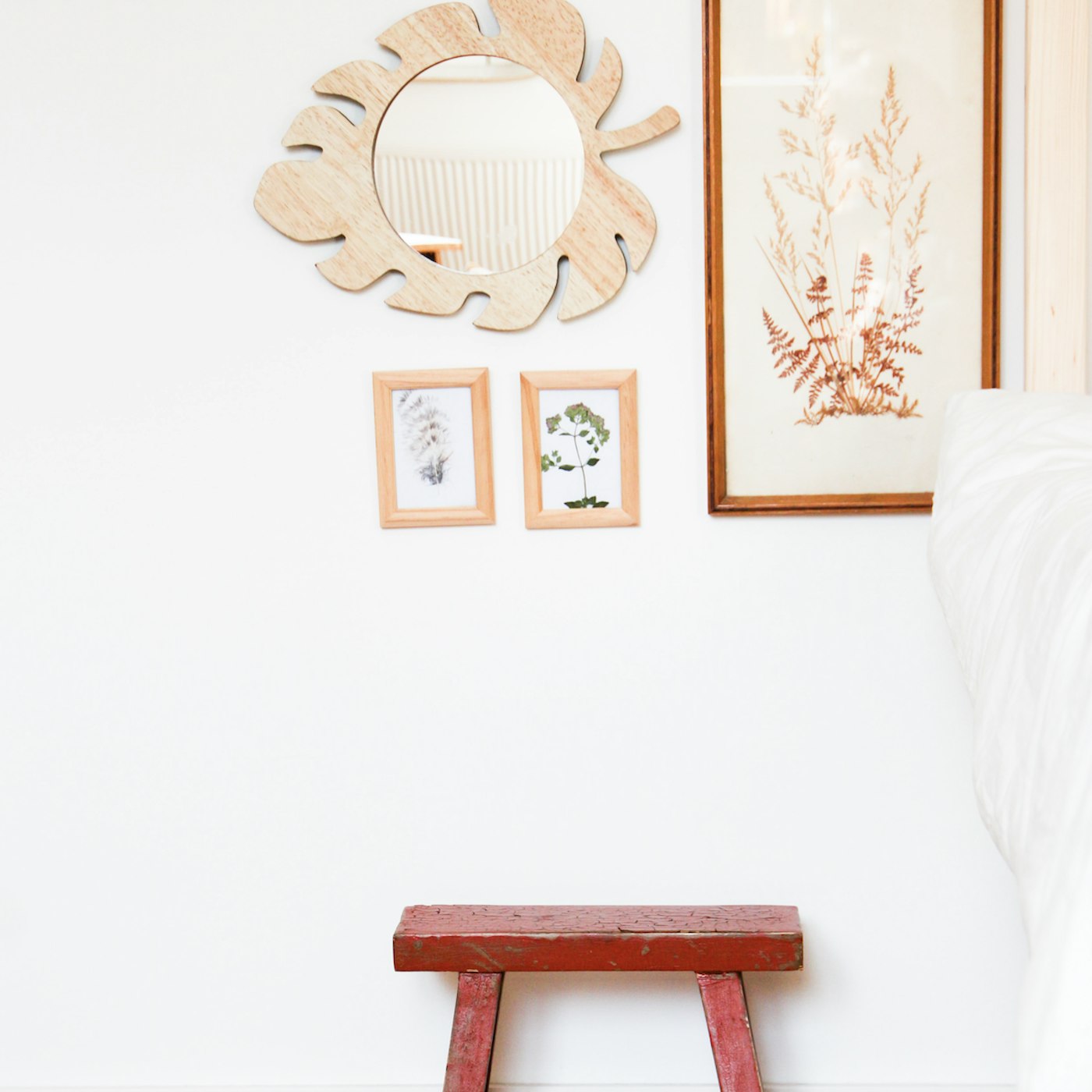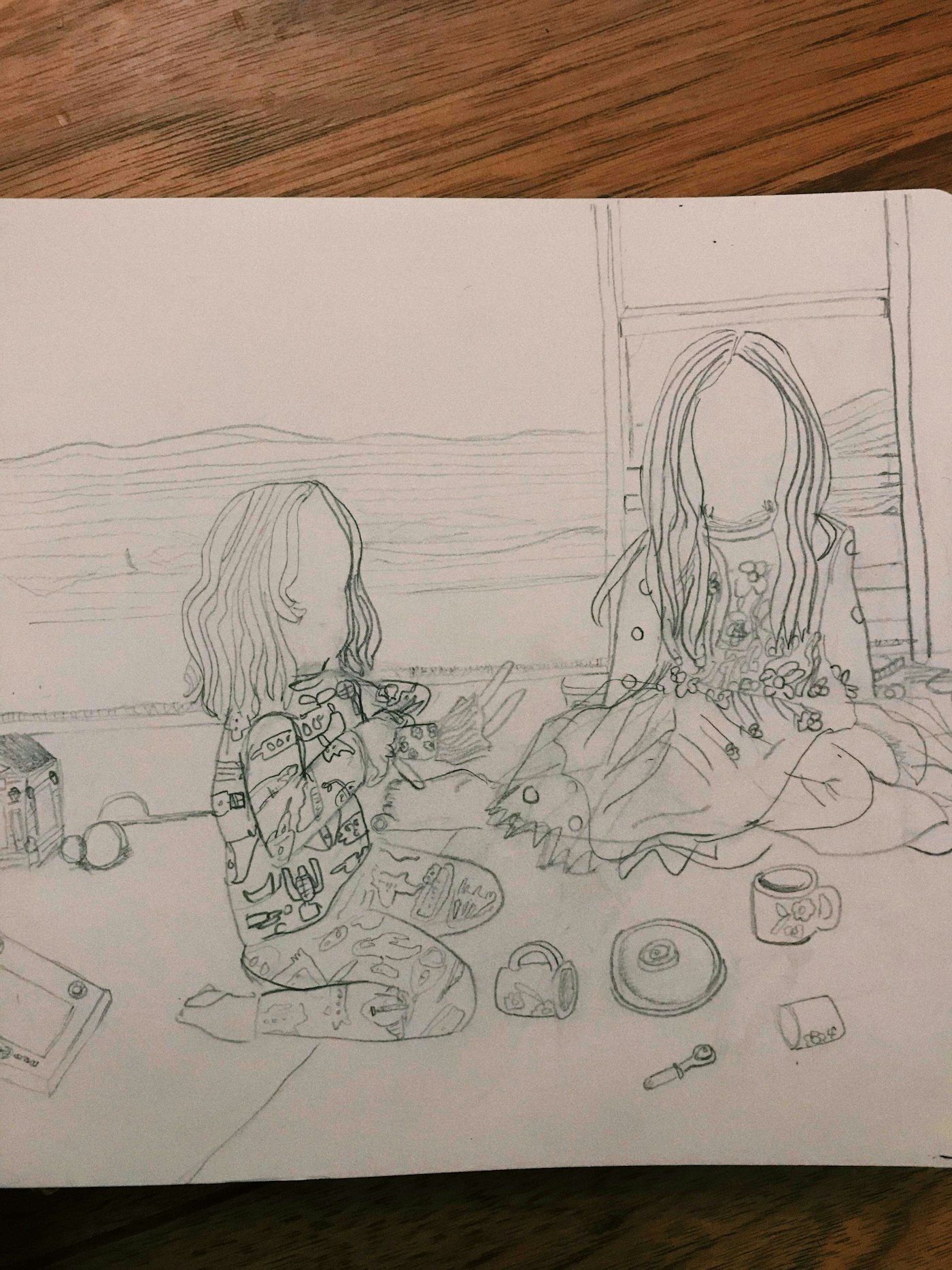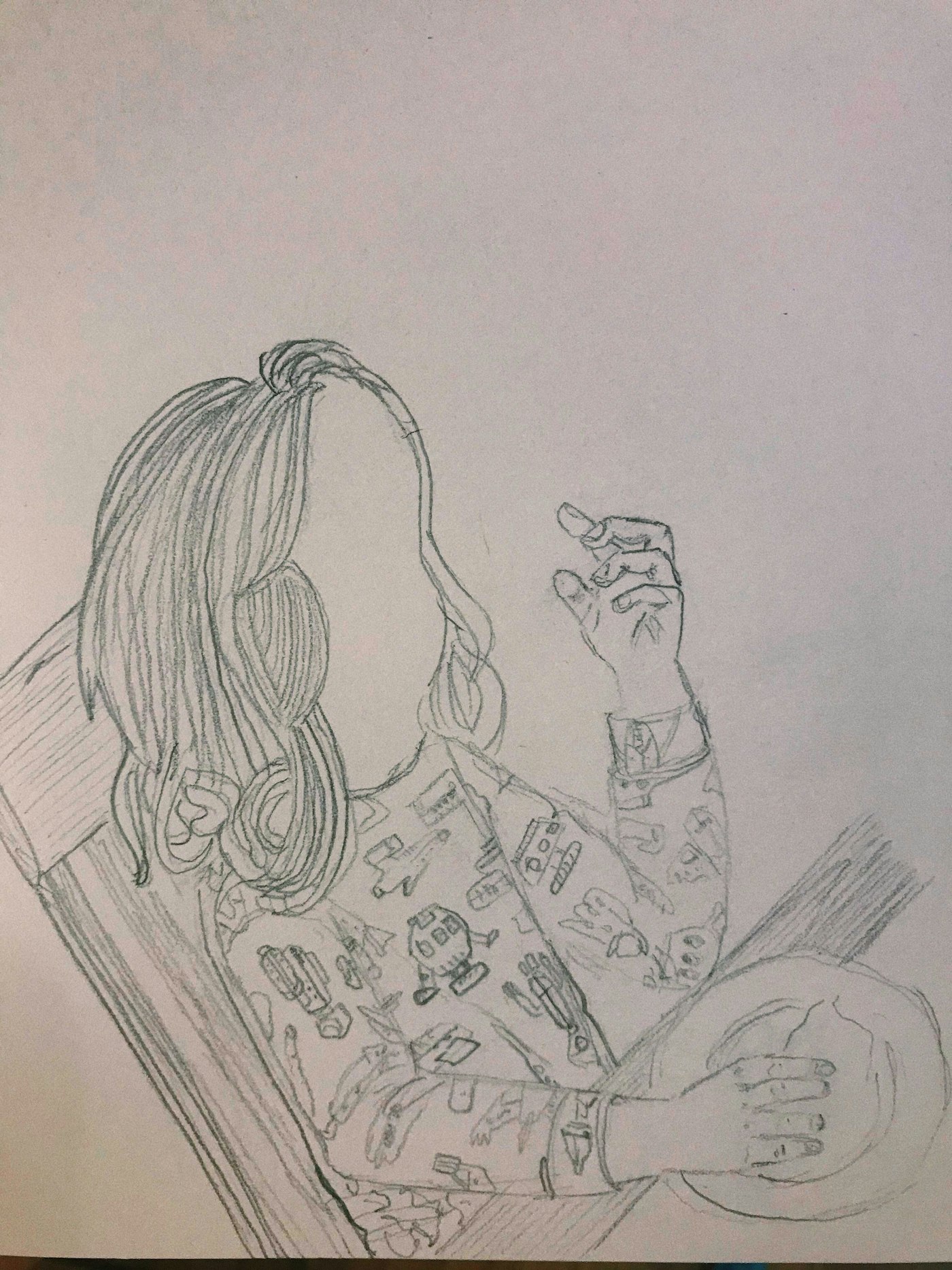Finding Meaning in Motherhood During Lockdown
by Mariya bint Rehan in Culture & Lifestyle on 18th December, 2020

As we bear witness to the profoundly humbling phenomena of the world coming to a screeching halt at the behest of a microscopic entity – and the closing of the arrogant ‘end of history’ exceptionalist mythology – we are all now in unchartered territory whereby the very ground in which we’ve rooted ourselves has been unceremoniously ripped from beneath us. As the multiple and varied factors which make up our worldly existence dissipate into thin air, as well as the stresses that we face concerning our material needs, we also face an existential challenge to repurpose ourselves in this incubation period – to reframe our ideals and values according to a new reality, in isolation, without the external validation of the world.
As a person of faith, I find myself searching for meaning in these circumstances that have taken on a life of their own, beyond the sphere of human influence. A global pandemic in which individual actions can lead to dire consequences on a local, national and international scale, should give us the opportunity to reflect on how we all, in our own capacity, impact the fabric of society. Particularly in the digital age of hyperconnectivity where we are more interlinked than ever. Where we see the ruptures COVID-19 has created in our social structures, we also see chinks in our social armour, areas for us all to make an improvement in the long term, and the need to modify our living. That one extra trip to the supermarket because we feel entitled to a particular standard of living could quite literally cost a life. And while the health implications for the majority of us will be negligible, the accumulative effect of this virus – that we are all potential carriers of – is lethal on a social level and catastrophic on a national and international level.
As Muslims, this should remind us to be conscious of how our smaller actions, that are visible only to Allah, not only have wide-scale impact, but equally form our moral character – and are a source of great barakah – and therefore should be given as much consideration as major life choices concerning the hijab, the beard, our mortgages…
Thinking beyond oneself and seeing ourselves with the potential to create better conditions for all – either through consumer or more significant life choices – is something we would all do well in carrying into life post-Corona.

Sketches of my children having a tea party
Life in quarantine should also give us the opportunity, and impetus, to reflect on how we see ourselves outside of this social structure, stripped bare of all of the external accessories that have so far formed our identity. The crutches we all unavoidably employ in order to present ourselves to the world no longer have any ground for leverage, and we are having to grapple with questions regarding our very sense of purpose and identity.
Already we are seeing the collective fictions we had so willingly invested in pre-Corona being shed like old, dead skin – with the increasingly ludicrous and tone-deaf range of celebrity responses to the crisis facing blanket ridicule. With life being hacked back to the very basic, the futility of celebrity culture and puerile nature of their ego-centric world becomes glowingly pronounced under the ultraviolet shadow of this pandemic. This occurs simultaneous to the virus wreaking sheer havoc on other collective fictions based on nationalism and racial supremacy – COVID-19 knows no borders, and – surprise, surprise – proves eugenics to be a total fallacy. The neoliberal economic order which holds the economy sacrosanct, and orders all of society and life to uphold economic prosperity, has been turned on its head as we see the various world economies brought to their knees in support of human health. The primacy of financial capital over humanity eventually saw the discarding of the old world order which placed headteachers and doctors at the top of career aspiration, as bankers and property moguls soon became the most rewarded professions. This too is exposed as a falsity as we are once again reminded of the true importance of public servants and professionals, as well as service workers and the so-called ‘low skilled’.
And so, as I retreat to my small flat, with my small children, to a much smaller world, I’m reminded of what I was created for, and where my priorities lie. I’m in a position where time has taken on a different dimension entirely – I no longer have, or particularly want, external markers of validation to motivate me or to use as anchors of purpose. For many of us, we had begun to embellish our lives to occupy us from the thought of the inevitable – death – and now the smell of it hangs low and heavy in the air. In the intense reckoning of entering lockdown, I’ve learned more about my role as a mother and a believer than anything else.
I have always struggled with the tendency to treat my time with my children as an experience I had to endure before I can get back to meaningful or enjoyable ‘real world’ activity – work or recreation. I often fell into the habit of treating my time with them like pit stops – the constant clock watching; if I can just get through the day then their bedtime would provide the relief and alone time I craved. I just had to get through the school run and then I’d have those precious few hours to myself. This restlessness appeared to afflict most mothers in my social circle, something we seem to have inherited from wider cultural attitudes and which peppered every mum conversation – ‘But what else are you doing?’ I was constantly asked, while covered in baby sick and trying my hardest to remember who I was speaking to. ‘I don’t know how you do it, I could never be just a mum.’
This temporal attitude in me bred a sense of complacency that meant I was not only rarely present when with my children, unable to see a purpose in its apparent mundanity, but that I had also taken a staggered approach to cultivating their development. Rather than seeing and enjoying them as constantly evolving and developing beings that needed my careful attention, I had begun to adopt a form of short termism when it came to their upbringing – a reflection of my pit-stop approach to their care.
Rather than appreciating and finding meaning in these fleeting moments of their rapidly passing youth, social expectations meant that my eye was always on another prize.
What this pandemic has made more clear to me than ever is that the responsibility for my children is solely mine – not any educational or social institution – eventually, they will be decision making adults and their moral core, more than anyone else, will be moulded by me. I had to start seeing my time with them as instructive, meaningful and contributing to a very important whole. My time and how I spend it with them will have rippling consequence through space and time. It is worthwhile and there is something personal to be derived from it.

A sketch of my child eating
That this came as a revelation to me is telling in itself. Consciously and subconsciously we receive the message that, as well as being perennially uncool, motherhood is an obstacle to social justice and action, rather than an accessory to it. While we see a welcome rise in social and environmental consciousness, what seems to fall decidedly out of these bounds is how we, as both women and men, treat the role of raising our next generation of citizens. As well as rampant capitalism, for women in particular, this comes in part due to a widespread misappropriation of feminism when used as a reactionary tool in order to gain equality with men alone. When we preoccupy ourselves with the vision of a patriarchal system which favours women equally, rather than to challenge the patriarchal structure at its very core. Because, as we all know, defining ourselves by or against the ‘male’ standard is to reinforce patriarchy and the many power imbalances it causes. For many of us, the archetypal, subservient and dutiful mother which has dominated feminine ideals for the best part of history remains hanging over us as a spectre, and how we position ourselves in relation to it, a litmus of how politically radical and, paradoxically, how socially responsible we are.
The role of mother, to me, took on a begrudging tone. It felt like my life was on hold until I could return to my professional role and make a ‘real life’ impact. Impact that was measured in ‘productivity’, objectives, output and goals – that the more nuanced, subtle and hidden outcomes and rewards of motherhood could in no way compete with. That the most pressing real world impact I had was sitting right under my nose was something that had totally escaped my attention and didn’t feature on my radar of things to do that were fulfilling or motivating. Motherhood appeared to sit outside of the discursive bracket of political activism and social consciousness as a value system, and didn’t appear to have the same impetus or sense of adrenaline. And while we are often told to compromise on creature comforts in order to ensure we are minimising our environmental impact, or levelling social inequalities, the very notion of speaking about or championing the idea of compromising on any level of comfort in the name of being a mum seemed like a betrayal of womanhood, a sentiment that seems to be reified by the growing influence of the beauty-masquerading-as-self-care industry.
What became apparent to me during my own journey of motherhood was that being a responsible, present, self-sacrificing mother, and finding joy in this, was potentially the most radical thing I could do, given current social attitudes.
While we can and often do speak openly about being responsible about what we put out into the world – referring to nebulous forces and vibes – the idea of being responsible about the actual corporeal beings we create and turn out to the world seems retrograde.
If my response to femininity is a knee-jerk eschewal of anything relating to child rearing and domesticity – who does this benefit? And what message am I sending to my children about their own self-worth, by denigrating the role of their care giver. Why is it – for both men and women – that productivity and achievement have to have an outward, social expression and why do we gain more pleasure and joy from receiving likes on our Instagram posts than we do from aiding our children to realise the best of themselves?
Coming to this realisation and unburdening myself from the social expectations to be continually dissatisfied with the sacrifices contained in motherhood and extricate myself from a social reward system which devalued motherhood, made me less resentful and more able and willing to be a conscientious and active parent. The current pandemic reminds me that those social mores which made it so difficult to parent effectively are in themselves illusionary. I am starting back at the very core of me, with no peripheral vision, and the role of mum will, for the next few months at least, take absolute precedence. And I can see now how this role is a social one, and my sacrifices as a mother are absolutely integral to being a responsible citizen, as well as a human being and believer.
Islamically the barakah that we gain from what we invest our time in is not immediately discernible let alone materially rewarding or socially recognised. Spending a few hours or the best part of the day nurturing your child rather than the multiple other activities that are socially sanctioned, and that ostensibly contain more promise and excitement, will not mean you always end the day feeling valued or seen or appreciated – those feelings that are so inextricably linked with outside approval. Leaving aside the insular online mum community that more often than not seems to benefit no one, motherhood appeared to me to be positioned outside of this external feedback loop of gratification which rewarded women for economic contributions or aesthetic traits.
And it is this constant reframing of time and the cleansing of what we deem a valuable way to spend it, that helps us be present in our salah – and not restless to attend to one matter or another – our Quran recitation and dhikr. It helps us, as men and women, in our most defining role – that of a believer.
Life in quarantine is helping to renew and refine my intentions and allowing me to reframe how I see what is deemed worthy and fulfilling. My time with my children has suddenly become precious and finite, and their eventual roles as social agents is something that weighs more heavily on my mind. And so, as well as finding a renewed sense of purpose and meaning in being a believer, I am also finding that this period is giving me the opportunity to find it in being a mum. To garner a sense of my own achievement in helping them to grow, learn, come to terms with the world, and equip them with the skills necessary to navigate it. To learn to be switched on enough to enjoy the subtleties of their daily development and the nuanced tones of a life outside of public appreciation. In quarantine, the clock watching is a futile exercise.
Essentially, we are currently living a life which provides the perfect conditions to cultivate taqwa – being in a position where only Allah sees us, and for my actions to be totally untainted by the influence of society is increasingly enabling me to fill my time with rewarding activities and to feel more content and at peace in what I have and who I am. The entire world has rearranged itself, and that means that we are able to take a step back from it and really asses both our purpose and our actions outside of social influences. What this crisis has made apparent to me is that we can fall into the all too inevitable trap of chasing clout at the expense of the very values we claim to be propagating – virtue signalling while compromising on our virtues. What I hope to carry with me beyond the oblivion of this current whirlwind is to centre this sense of taqwa and allow it to continue to become a guiding principle in my actions outside of this period. To understand that my meaning and purpose will always come from above, and that is the only direction I should be seeking approval from, particularly when – for those of us that will be fortunate enough to escape this situation whole – we will have the delicate task of helping to make our children whole again.
Mariya bint Rehan
Mariya is a mother and author, with a background in Policy and Research and Development. Her first book published by Kube Publishing, The Muslim (M)Other is a series of essays which interrogate the political, cultural and digital environments in which Muslim women mother. You can find her on Instagram as @mariyabintrehan